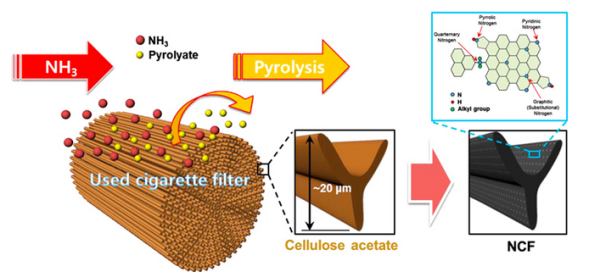Trillions of cigarettes are smoked every year, leaving behind discarded filters containing non-biodegradable materials that can be recycled into carbon-based products for electrochemical components. This was discovered by a team of South Korean scientists who presented their unique energy storage solution in IOP Publishing’s journal of Nanotechnology.
The materials inside the cigarette filters offered up better performance than commercially bought carbon, graphene and carbon nanotubes at the time. They hoped to coat electrodes of supercapacitors with the material to be inserted into computers, handheld devices, and electric vehicles. A simple one-step burning process called pyrolysis reduced the filters down into a carbon-based byproduct with tiny pores. The leftover porous substance ensured higher power densities for supercapacitors. This was then tested out to see how well the material absorbed electrolyte ions and discharged them. It did better than expected and stored higher amounts of electrical energy than other commercially available options.
The full paper is linked at the bottom of their article but it’s behind a paywall. If you have a subscription and the time to look it over, please let us know if you think there’s potential for this unorthodox material source or if they’re just blowing smoke.
[Thanks for the tip Ryoku!]












